Glass is used in many different products in the United States, from plateware, packaging, and lightbulbs to ornamental items and mirrors. And, unfortunately, many of us discard our glass items after they are no longer usable. However, did you know that it is one of the most viable products to recycle? That’s right! If you’ve ever asked can you recycle glass, the answer is yes. The next time you finish that bottle of juice or empty the jelly jar, instead of throwing it in the trash, where it will end up in a landfill, recycle it! This article will talk about the impacts of glass, how to recycle glass, products made from recyclable glass, and much more. So, keep reading to find out more about glass recycling.
Curbside Pickup Glass Recycling
Recycling glass containers, which many people overlook, is an excellent start to your journey of recycling. The easiest way to recycle glass is curbside pickup. Do not put dirty glass containers in your bin. Be sure to rinse them well to remove any food or drink residue. This will help to minimize odors as well as food contamination. Also, if possible, removing the labels is very helpful.
It is vital to make every effort to ensure you do not break any glass you are planning on recycling. Broken glass is not only dangerous, but it also has minimal recycling value. If glass breaks, wrap it in a plastic bag before disposing of it so that sanitation personnel are not hurt while handling it. Knowing how to recycle glass at home properly helps save natural resources while keeping trash and recycling collectors safe.
Unfortunately, curbside pickup is not available in every community. Glass has been prohibited in certain places using single-stream recycling systems in recent years because of contamination issues. Be sure to check with your local recycling center or waste management provider to determine whether you can recycle glass.
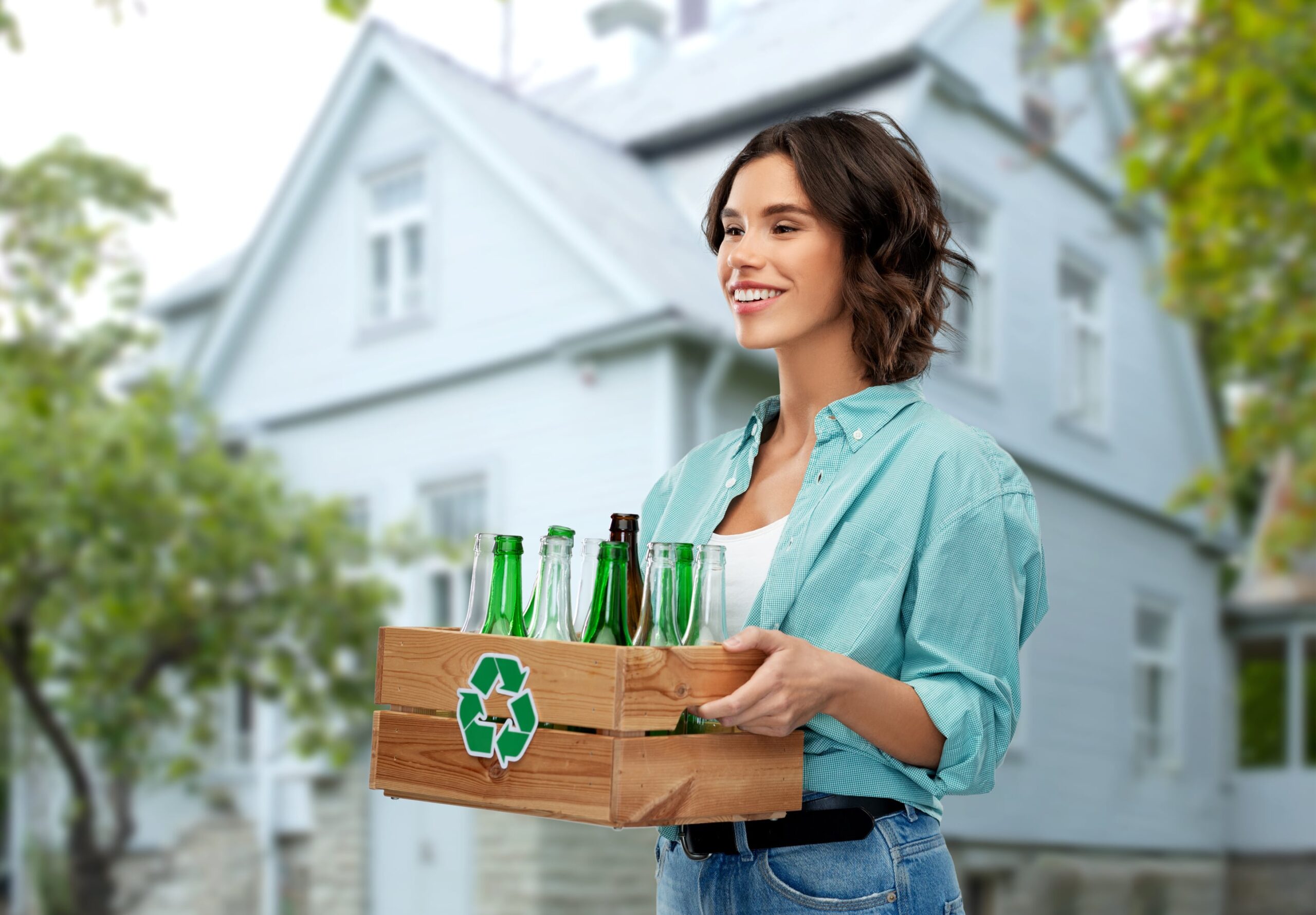
How to Recycle Glass When Curbside Pickup is Not Available
If your curbside pickup does not allow glass, you may be wondering where can I recycle glass. KC Dumpster is here to help. There are many other ways to recycle glass. For example, communities that do not have a curbside glass recycling option may frequently set up additional collection sites, such as your local recycling drop-off facility. If this is the case in your city, look for more methods to recycle glass, such as checking online using the glassrecycles.org website to locate a nearby recycling center.
Creative Ways to Reuse Glass Containers
If curbside recycling is not available or you do not have a recycling center nearby, get creative! There are many different uses for glass containers. Below are a few ideas to reuse or upcycle glass containers.
- You can reuse glass bottles by refilling them with water and other drinks.
- Glass jars are great for homemade candles or as a container for tea candles.
- If you are feeling creative, break colored glass bottles and create a piece of mosaic.
- Glass containers are great to store leftovers.
- Reuse glass jars and bottles as a vase for flowers.
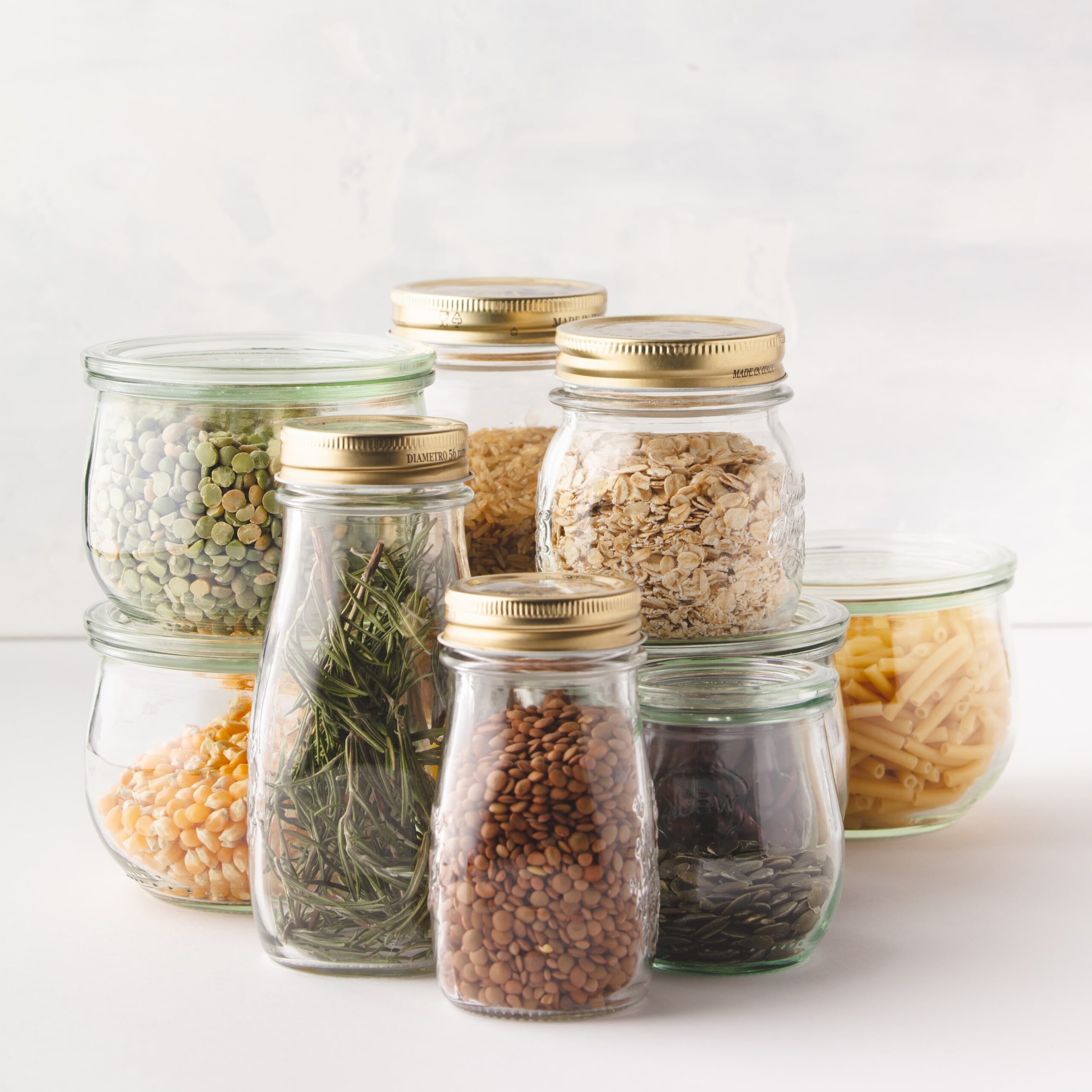
How is Glass Processed for Recycling?
In the recycling process, glass containers are taken to a processor. Once there, the containers are first cleaned and then sorted by color or glass type. The next step is to crush the glass. The recycled glass becomes what is known as cullet. The industry prefers any recycling program that results in contaminant-free glass, sold to manufacturing companies to produce glass bottles, jars, fiberglass products, and an alternative for sand in several industrial uses. Studies show that In the US the primary reuse of glass in recycling is changing glass back into bottles and containers, which accounts for approximately 33% of all recycled glass. The subsequent highest use is in creating fiberglass.
What Can You Make with Recyclable Glass?
Manufacturers may use recycled glass to produce a variety of everyday items as well as others that are entirely unexpected, such as:
- New jars and bottles
- Glass wool insulation for houses, which improves energy efficiency, and
- Filter medium for water
- Containers made of glass
- Fiberglass
- Countertops made from recycled glass
- Foamed glass Aggregate
- Ground covering
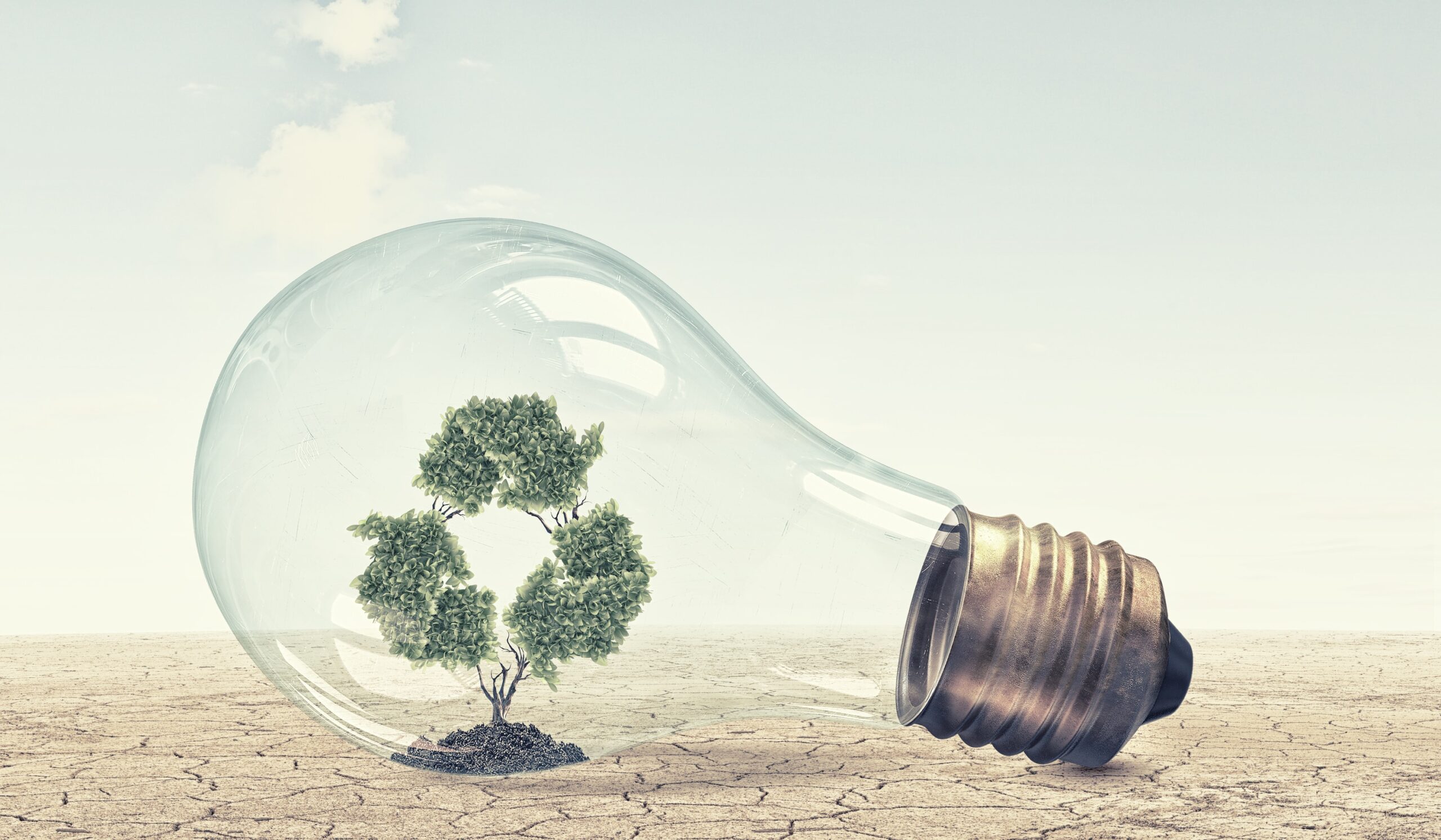
Glass cookware and storage containers, on the other hand, are not recyclable. Neither are most types of lightbulbs unless your recycling supplier specifies otherwise. These things are considered pollutants by glass recyclers. The following are some of the varieties of glass that are not recyclable:
- Panes of glass
- Mirrors
- Glass for automobiles
- Crystal
- Ceramics, which include kitchenware and ornamental items
- Heat-resistant glass, such as Pyrex
- Lightbulbs, unless your recycler explicitly accepts them
What is the Environmental Impact of Recycling Glass?
Glass manufacturing and usage have several environmental consequences. Sand, soda ash, limestone, and additions for color or specific treatments are the four basic components to make new glass. Although there is no lack of these basic materials, they must all be extracted and processed, which consumes natural resources and energy. Glass is recyclable and may be recycled indefinitely with no loss of quality. As a result, just recycling our glass allows us to:
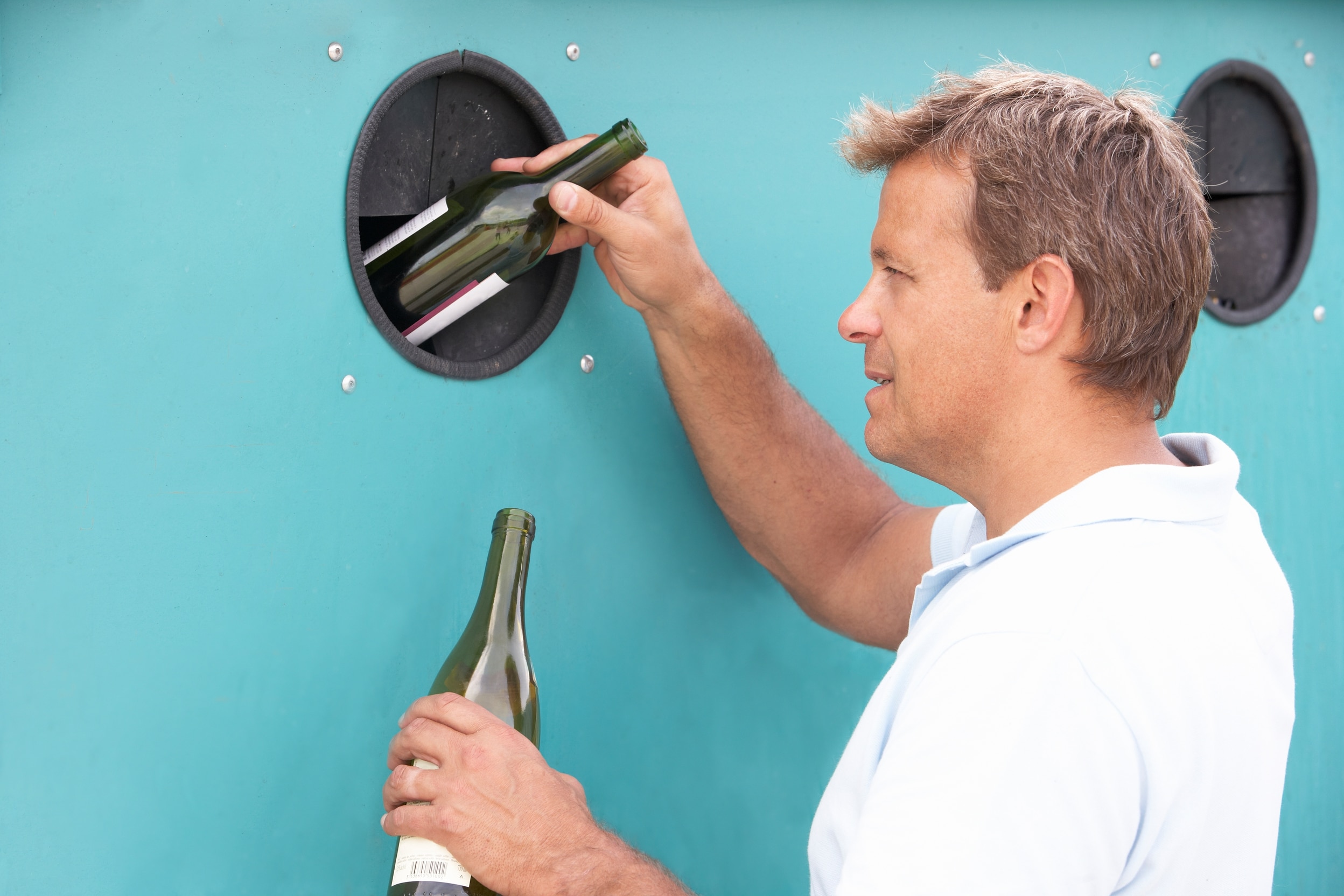
- Reduce the use of nonrenewable fossil fuels.
- Reduce the amount of CO2 emitted during the manufacturing process using carbonate raw materials such as limestone.
- For every ton of cullet added to the furnace, we save 1.2 tons of raw materials.
- For every one ton of recycled glass, approximately 580kg CO2 is avoided across the supply chain, air pollution is decreased by 20%, and water pollution is reduced by 50%.
Statistics on Glass Recycling
- Glass bottles and jars are entirely recyclable and can be recycled indefinitely without losing purity or quality.
- The container and fiberglass industries buy 3.35 million tons of recycled glass to reuse for new containers and fiberglass goods each year. Precision Consulting and NAIMA are two sources for this information.
- We save almost one ton of natural resources for every ton of glass that is recycled.
- Energy expenses are reduced by roughly 2-3% for every 10% cullet utilized in the production process.
- We eliminate one ton of CO2 for every six tons of glass that we recycle.
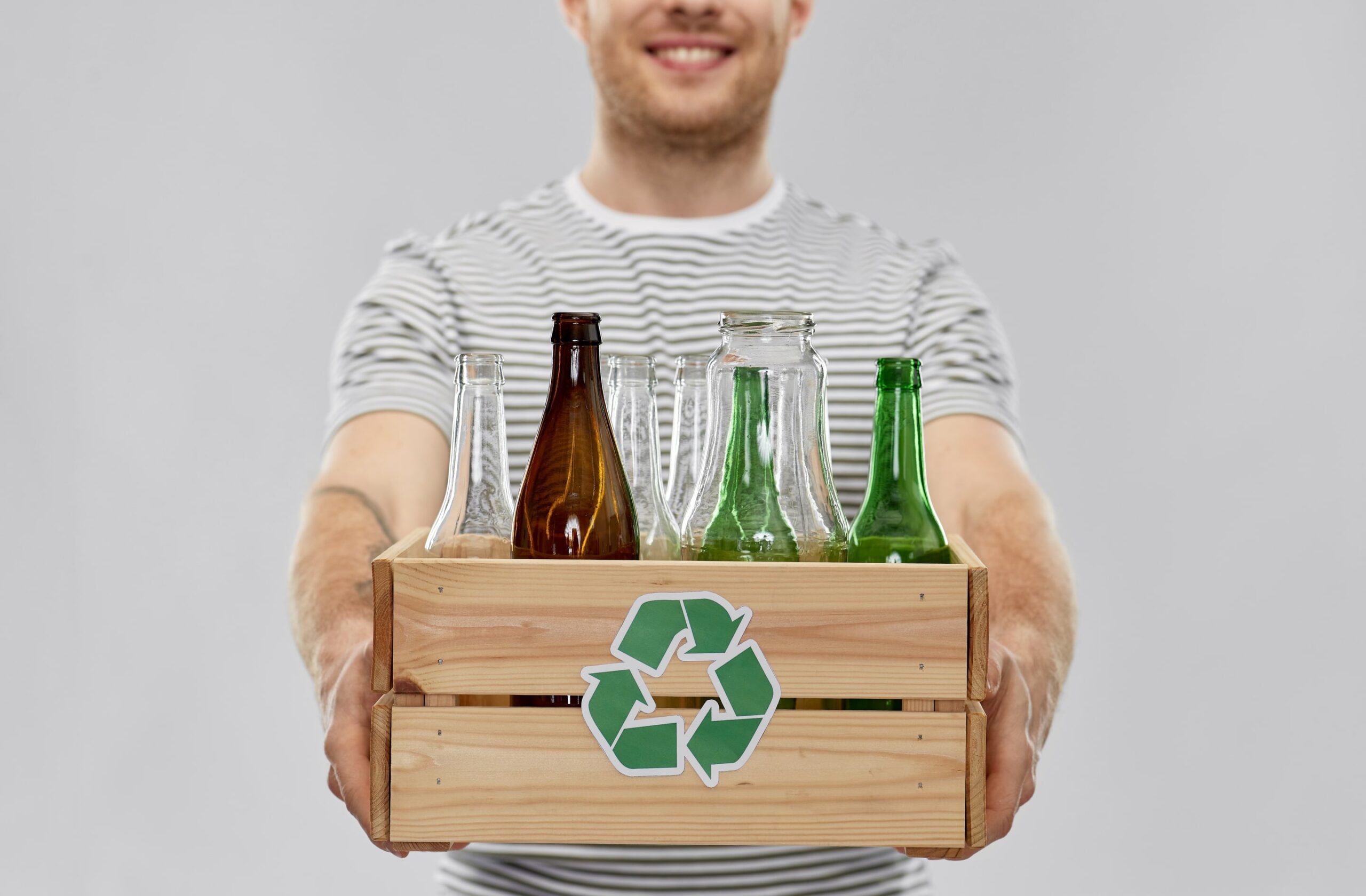
- In 21 states, 44 glass production factories are in operation. In addition, in 30 states, there are 63 beneficiation glass facilities (also known as “glass processing” factories). Recycled glass is cleaned and sorted to specifications at glass processing factories before being resold to glass container manufacturing businesses for re-melting into new food and beverage containers.
- According to the Container Recycling Institute, states with container deposit laws have an average glass container recycling rate of slightly over 63 percent, whereas non-deposit states only achieve around 24 percent.
- Approximately 18% of beverages are drunk on-premises, such as at a bar, restaurant, or hotel. And glass accounts for around 80% of the container mix.
- Over the last 30 years, the weight of glass bottles has decreased by roughly 40%.
- Recycled glass may replace up to 95 percent of raw resources.
- Recycling benefits manufacturers in numerous ways: it decreases pollutants and raw material use, and it extends the life of the equipment used, such as furnaces, as well as saves on energy.
- Recycling 1,000 tons of glass generates slightly more than eight jobs.
Last Thoughts on How to Recycle Glass Correctly
Because glass is such a common material, it is pertinent to understand how to recycle glass correctly. From curbside pickup to finding where to recycle glass near me, there are a variety of options for taking care of used glass properly. KC Dumpster hopes the above tips will not only help you find where to recycle glass but we hope the above ideas on reusing glass will spark creativity in your home.
Taking small steps to recycling glass correctly can help the environment and recycling industry in big ways. KC Dumpster has more eco-friendly waste management tips and insights on our website, and we are the leading dumpster rental company in Kansas City and the surrounding areas. Looking for a roll off dumpster for your next home renovation? We are the team to call! Contact KC Dumpster today for more information, and next time you go to throw away an empty glass jar, think twice about recycling and reusing.
Leave A Comment